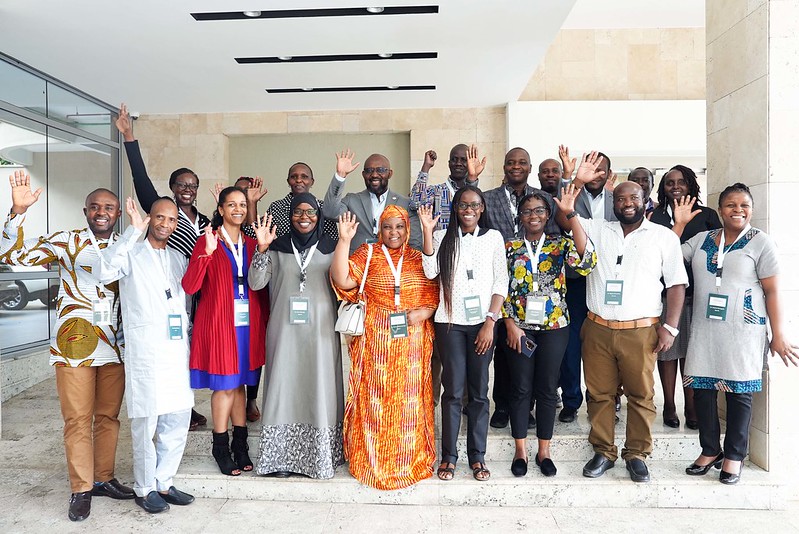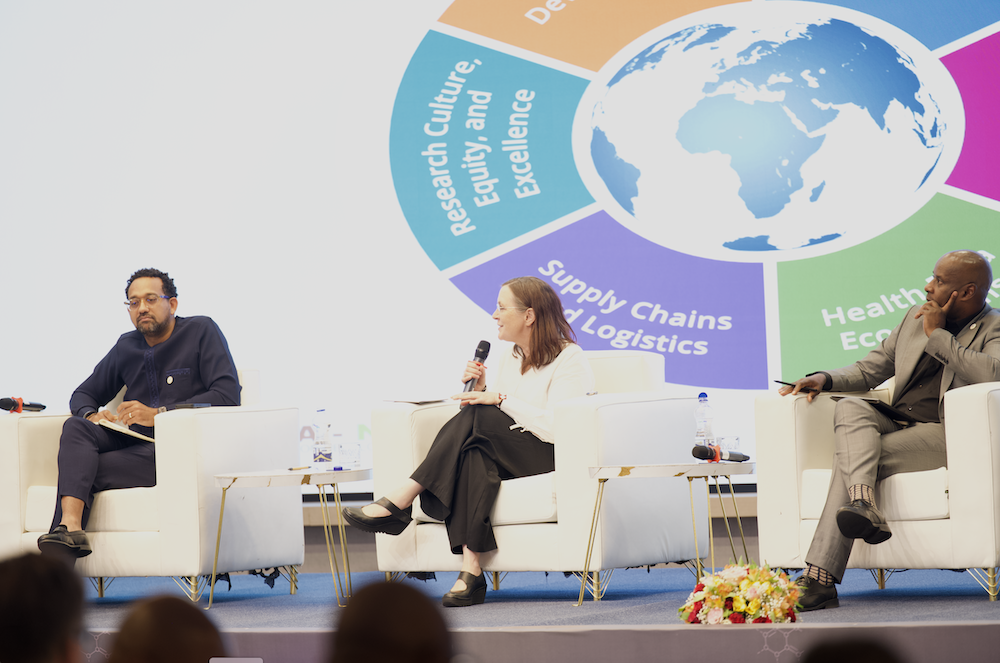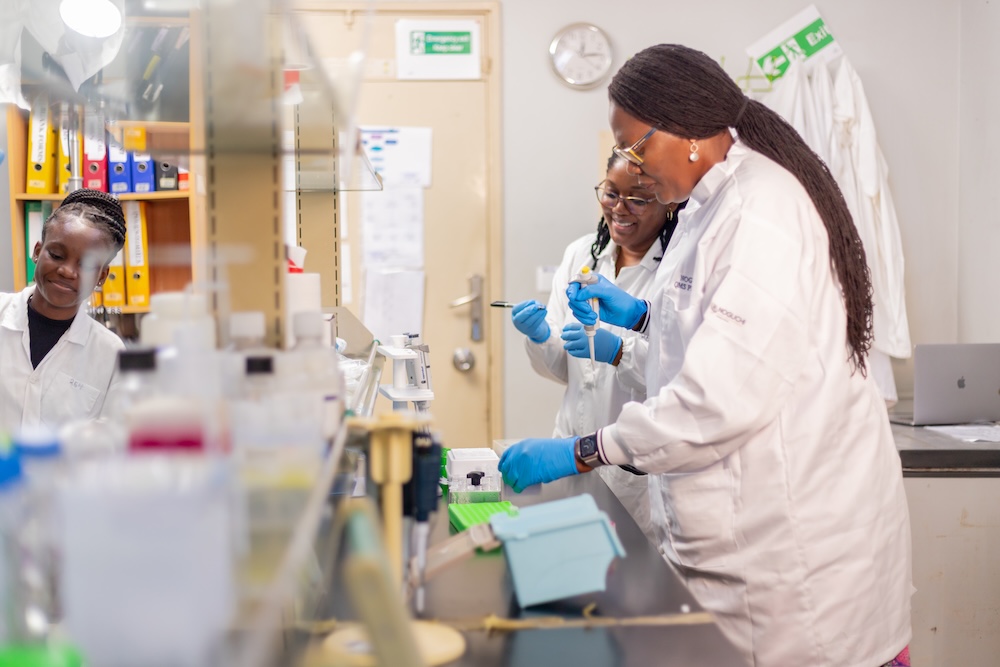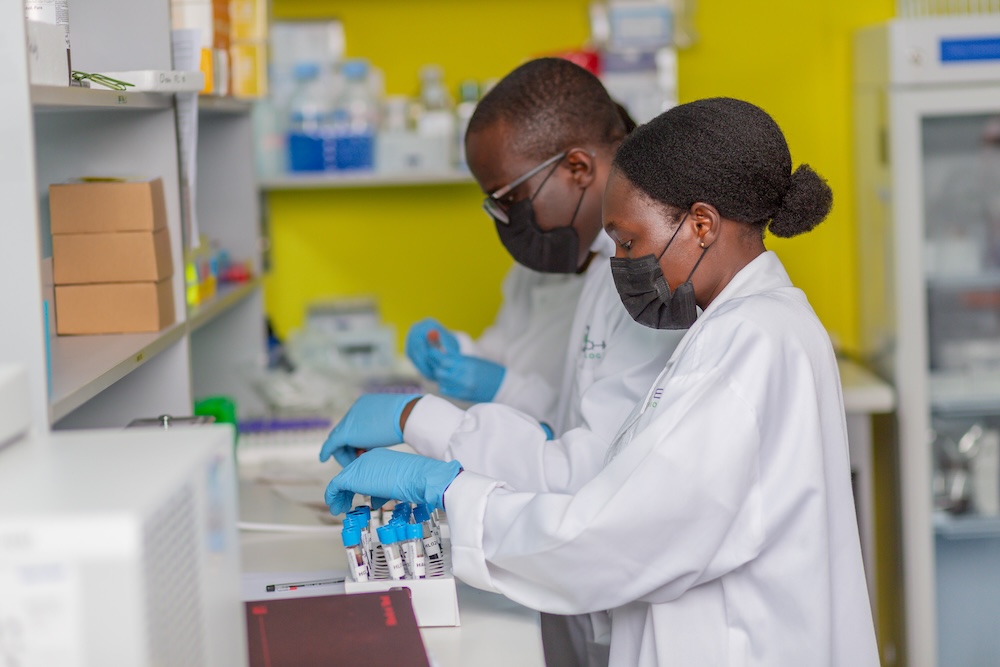
Media Centre
12 awardees of social sciences and humanities postdoctoral fellowships announced
Thursday, April 18, 2024

The Science for Africa Foundation (SFA Foundation), with a grant from the Carnegie Corporation of New York, is announcing 12 African researchers who have been provided postdoctoral fellowships in the field of social sciences and humanities in Africa.
The 12 fellowships, which represent a $780,000 investment through the SFA Foundation’s Preparing Outstanding Social Science Investigators to Benefit Lives and Environments in Africa Programme (POSSIBLE-Africa) initiative, seek to enable the production of evidence to inform sustainable development in Africa.
POSSIBLE-Africa is a two-year initiative designed to fund research in the fields of social sciences and humanities (SSH) across Africa. The fellows, who are addressing a wide array of development and societal opportunities in Africa, are drawn from Uganda, Mali, Ghana, Tanzania and Nigeria. They will receive funding of up to USD 65,000 each to support their research endeavours over the course of their funding and to cultivate them into globally competitive social sciences and humanities research leaders in Africa.
The initiative will not only provide financial support but also offer capacity-building opportunities to empower fellows and drive transformative change in social sciences and humanities capacity development across the continent. The fellows had 12 weeks of formal research capacity development, delivered through a hybrid approach that included virtual training, mentoring and peer mentoring, as well as a 2-week in-person Summer School where Fellows introduced their research topics and receive training in on Research Design and Planning and Scientific Writing and Publishing. The training facilitated by the African Population and Health Research Center (APHRC), will improve the Fellows' perspectives, knowledge and skills and help them to improve their technical research proposals which they will implement during this fellowship. Certificates were awarded to the Fellows for their participation and course completion.
The fellows will continue the training through virtual platforms, covering modules including curriculum development, grant proposal writing and mentoring. The Summer School and continuing virtual courses contribute towards SFA Foundation's aim of developing global science leaders and the production of excellent science outputs, as well as building a critical mass of social sciences and humanities leaders on the continent.
"Investing in African-led research is crucial for fostering inclusive development and addressing the continent's unique challenges. By supporting scholars and researchers from diverse backgrounds, we amplify diverse voices and perspectives, enriching scholarly discourse and driving positive change,” said Salome Wawire, Senior Programme Officer for POSSIBLE Africa.
Importance of Funding African-led SS&H Research
Efforts to enhance research capacity in Africa have predominantly focused on biomedical and health sciences, leaving a gap in support for the social sciences and humanities. Despite limited resources, SS&H scholars in Africa have demonstrated remarkable productivity, underscoring the potential for leveraging investment in these fields to yield significant outputs. Additionally, Africa-led SSH scholarship offers unique perspectives essential for addressing the complex challenges facing the continent, necessitating a critical mass of researchers equipped with advanced skills in SS&H.
Challenges Faced by SS&H Scholars and Researchers:
SS&H scholars encounter obstacles such as limited funding opportunities, lack of recognition, and data accessibility issues, hindering their ability to conduct high-quality research and contribute effectively to interdisciplinary solutions.
“Receiving this grant will be transformative for my research. It will provide the resources and support needed to delve deeper into pressing societal issues, ultimately contributing to meaningful change in my community," said Dr Samba Diarra, University Clinical Research Centre, University of Sciences, Techniques and Technology of Bamako, Mali.
We look forward to witnessing the impactful contributions of these 12 fellows from Ghana (2), Nigeria (3), Mali (1), Tanzania (1) and Uganda (5) as they embark on their research journeys:
Ghana
-
Ebenezer Forkuo Amankwaa from the University of Ghana is exploring how indoor classroom air temperatures and school buildings and classroom conditions interact to affect the extreme heat experiences and thermal comfort of schoolchildren in Ghana
-
Samuel Adjorlolo from the University of Ghana is addressing mental health via the application of Multi Family Group Therapy, a structured, theory-driven and hybrid of group and family interventions that foster mutual support and learning between families to improve mental health and wellbeing.
Nigeria
-
Hauwa Mohammed Sani from Ahmadu Bello University Zaria is exploring women's pivotal role in fostering conflict resolution and peace-building in Kaduna, Katsina, and Zamfara states of northern Nigeria
-
Cynthia Nwobodo from the University of Nigeria, Nsukka is studying the capabilities for controlled environment agriculture in Southeast Nigeria with the aim of enhancing food security for African households in the face of climate change.
-
Sunday Adedini from the Federal University Oye-Ekiti is undertaking a community- and facility-based surveillance of child mortality and morbidity to investigate the causes of under-five deaths in selected communities in Nigeria.
Mali
-
Samba Diarra from the University of Sciences, Techniques and Technologies of Bamako is developing a social science framework for examining the risks and opportunities of genetic technologies for malaria control to inform Malian and African decision-makers about the conditions necessary for public support for gene drive and GM mosquitoes.
Tanzania
-
Elgidius Ichumbaki from the University of Dar es Salaam is investigating the use of music videos and cartoons to educate the public on the values of cultural heritage sites.
Uganda
-
Aisha Sembatya Nakiwala from Makerere University is investigating how communities which supply migrant labour can contribute to combating unsafe migration
-
Kellen Kiambati from the Uganda Martyrs University is investigating the capabilities for pandemic preparedness and organization resilience among universities in Kenya
-
Eria Serwajja from Makere University is examining the socio-economic intricacies that underpin food waste and its implications on food and environmental (in)security in Uganda and South Sudan.
-
Laury L. Ocen from Lira University is investigating how the inclusion of vernacular intelligentsia into the mainstream academy can reorient the way sexual, environmental, and public health knowledge is produced, owned, and disseminated in a collaborative context.
-
Victoria Flavia Namuggala from Makerere University is examining indigenous approaches to teenage parenting in Uganda. Teenage parenting is a big social and health problem, overly focused on teenage pregnancy and motherhood.
Media Enquiries I Davies Mbela I [email protected]



